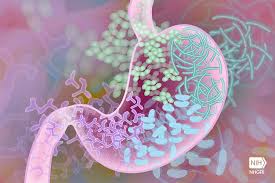In recent years, gut health has become a buzzword in the world of wellness—and for good reason. The gut, often referred to as the "second brain," plays a crucial role in overall health. At the center of this system lies the gut microbiome, a complex community of trillions of microorganisms, including bacteria, fungi, and viruses, that live in our digestive tract.
These microorganisms impact everything from digestion and immunity to mental health and chronic disease prevention. Probiotics—live bacteria and yeasts that benefit the gut—have gained attention for their potential to enhance microbiome health. This blog dives into the science of gut health, the importance of probiotics, and plant-based strategies to nourish your microbiome.
What is the Gut Microbiome?
The gut microbiome consists of a diverse array of microorganisms residing in your gastrointestinal tract. This ecosystem is unique to each individual and influenced by factors like diet, environment, genetics, and lifestyle.
A healthy microbiome maintains a balance between "good" and "bad" bacteria. When this balance is disrupted—a condition called dysbiosis—it can lead to digestive issues, weakened immunity, and even chronic diseases like diabetes, obesity, and inflammatory bowel disease (IBD).
Why Gut Health Matters
The health of your gut has far-reaching effects on your overall well-being. Here are key reasons why your microbiome matters:
- Digestion and Nutrient Absorption
- The gut breaks down food, absorbs nutrients, and eliminates waste.
- Beneficial bacteria help digest complex carbohydrates, fiber, and produce essential vitamins like B12 and K2.
- Immune System Support
- About 70% of your immune system resides in the gut.
- A balanced microbiome strengthens your immune defenses, while dysbiosis can increase susceptibility to infections.
- Mental Health
- The gut-brain connection is facilitated by the vagus nerve and neurotransmitters like serotonin, 90% of which is produced in the gut.
- An unhealthy gut can contribute to anxiety, depression, and mood disorders.
- Chronic Disease Prevention
- A healthy microbiome reduces inflammation, a root cause of conditions like heart disease, diabetes, and cancer.
The Role of Probiotics in Gut Health
Probiotics are live microorganisms that provide health benefits when consumed in adequate amounts. They work by replenishing beneficial bacteria in the gut, restoring balance, and enhancing microbiome diversity.
Common Probiotic Strains
- Lactobacillus: Improves digestion, supports the immune system, and helps with lactose intolerance.
- Bifidobacterium: Reduces inflammation, enhances gut barrier function, and supports bowel regularity.
How to Support Gut Health with Probiotics
A diet rich in probiotic and prebiotic foods (which feed probiotics) is essential for a healthy microbiome. Here are plant-based strategies to boost gut health:
- Eat Probiotic-Rich Foods
Incorporate naturally fermented plant-based foods to introduce beneficial bacteria into your gut.
- Examples of Probiotic Foods:
- Sauerkraut (fermented cabbage)
- Kimchi (spicy fermented vegetables)
- Miso (fermented soybean paste)
- Tempeh (fermented soybeans)
- Kombucha (fermented tea)
- Plant-based yogurt with live cultures
- Pro Tip: Look for products labeled with "live and active cultures" to ensure they contain probiotics.
- Add Prebiotic Foods to Your Diet
Prebiotics are non-digestible fibers that feed probiotics, helping them thrive.
- Examples of Prebiotic Foods:
- Garlic
- Onions
- Leeks
- Asparagus
- Bananas (preferably slightly green)
- Chicory root
- Oats
- Jerusalem artichokes
- Pro Tip: Combine prebiotics with probiotics in meals to create a synbiotic effect, enhancing gut health. For example, pair plant-based yogurt with sliced bananas.
- Focus on Fiber
Fiber-rich plant foods are essential for a diverse microbiome and regular digestion.
- High-Fiber Foods:
- Whole grains (quinoa, barley, brown rice)
- Legumes (lentils, chickpeas, black beans)
- Vegetables (broccoli, kale, carrots)
- Fruits (apples, pears, berries)
- Seeds (chia seeds, flaxseeds)
- Pro Tip: Gradually increase fiber intake to avoid digestive discomfort, and drink plenty of water to aid digestion.
- Avoid Microbiome Disruptors
Certain foods and lifestyle habits can harm your microbiome.
- Foods to Limit or Avoid:
- Highly processed foods (chips, cookies, packaged snacks)
- Refined sugars and artificial sweeteners
- Excessive alcohol
- Pro Tip: Replace processed snacks with whole foods like fresh fruits, nuts, or veggie sticks with hummus.
Lifestyle Tips for a Healthy Gut
Gut health isn’t just about what you eat; your lifestyle also plays a role.
- Manage Stress
- Chronic stress can disrupt gut-brain communication and harm the microbiome.
- Practice stress management techniques like deep breathing, mindfulness, or nature walks.
- Get Enough Sleep
- Poor sleep disrupts the circadian rhythm of your microbiome, impacting digestion and immunity.
- Aim for 7–9 hours of quality sleep per night.
- Stay Active
- Regular exercise enhances microbiome diversity and supports gut health.
- Aim for at least 30 minutes of moderate activity most days.
- Stay Hydrated
- Drinking water supports digestion and nutrient absorption, benefiting gut health.
Signs Your Gut Needs Support
How can you tell if your microbiome is out of balance? Common signs include:
- Frequent bloating, gas, or diarrhea
- Food intolerances or sensitivities
- Frequent colds or infections
- Persistent fatigue or brain fog
- Skin issues like acne or eczema
If you experience these symptoms, focusing on gut-friendly foods and lifestyle changes can help.
The Long-Term Benefits of Gut Health
By nurturing your microbiome, you can enjoy:
- Better digestion and fewer gastrointestinal issues
- Enhanced immunity and reduced inflammation
- Improved mood and mental clarity
- A lower risk of chronic diseases
Conclusion
Your gut is the gateway to your overall health. By prioritizing probiotics, prebiotics, and a fiber-rich, plant-based diet, you can cultivate a thriving microbiome that supports your digestion, immunity, and well-being. Small, consistent changes in your diet and lifestyle can lead to big improvements in how you feel.
Take charge of your gut health today—it’s an investment in your future self.

